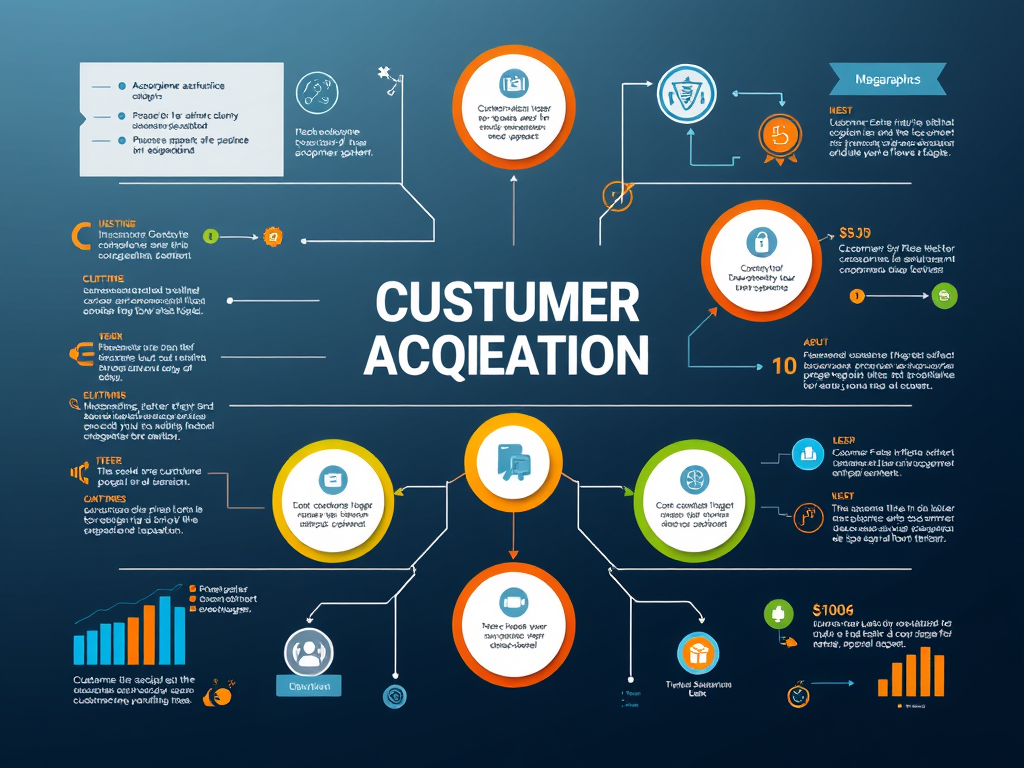Ideas Get You Started. Systems Keep You Alive.
Every startup begins with a spark—the excitement of an idea, the late-night brainstorming, and the dream of changing the world. In those early days, it seems that passion alone can propel the business forward. But here’s the hard truth: passion without structure burns out fast.
The graveyard of startups is littered with brilliant ideas that went nowhere. The founders were passionate, the vision was clear, and the market was ripe for growth. So what went wrong? Often, it wasn’t a lack of a great idea—it was the absence of a great system.
Data from sources like CB Insights shows the top reasons startups fail are running out of cash and losing to the competition. What these reports often fail to mention is that a lack of systems is frequently the root cause. Without a clear system for managing cash flow or a reliable process for sales, even the best ideas are destined to fail. A system is the invisible force that protects a business from these common pitfalls.
Great ideas may win attention, but only great systems win longevity.
What is a “System,” Anyway?
When we say “system,” it sounds corporate and boring. But for a startup, a system is simply a repeatable process that creates a predictable result. It’s about replacing “What should I do next?” with “This is how we do this.”
Think about it in these terms:
- A System for Managing Cash Flow: This isn’t just glancing at your bank account. It’s a weekly cash flow projection spreadsheet, a simple budget for key expenses, and a clear approval process for any purchase over ₹10,000. It’s the difference between hoping you have money and knowing your exact runway.
- A System for Sales: This isn’t just “go get customers.” It’s a defined process: a CRM to track leads, a template for your first outreach email, a script with key discovery questions for calls, and a standard proposal document. This turns selling from random art into a predictable science.
Without these, you’re constantly reinventing the wheel, wasting precious time and energy that your competitors are using to gain an advantage.
WHAT IT MENT TO SCALE YOUR BUSINESS
Ever feel like a genius on Monday but a total slacker by Wednesday? You’re not lazy; you’re just relying on the wrong tools.

We run our businesses on motivation and willpower. But motivation is a feeling that fades, and willpower is a battery that’s empty by lunchtime. They are terrible tools for building something great.
Successful founders know this. They don’t try harder; they build systems that run on autopilot.
Think of a founder, Priya, who wanted to grow her business on LinkedIn. For months, she posted only when she felt “inspired,” which meant a few great posts followed by weeks of silence.
Her fix wasn’t more hustle. It was a simple system:
- Sunday: 1 hour to outline the week’s posts.
- Mon/Wed/Fri: A 15-minute calendar alert to simply hit “publish.”
That’s it. Suddenly, her mood didn’t matter. Her inspiration was irrelevant. The system made the right action the easiest one, freeing up her willpower for more significant problems.
The unstoppable power of consistency replaced inconsistent bursts of genius. Her business grew not because of what she did on her best days, but because of the simple process she followed on her worst days.
This is the secret to building a resilient business. But what are the most critical systems you should build first?
Keep reading, because next, we’ll break down the three essential systems every founder needs to protect their cash and find more customers.
Three Foundational Systems for Startup Success
The startup graveyard isn’t filled with bad ideas; it’s filled with brilliant ideas that lacked a system for survival.
Research consistently points to a simple truth: while passion provides the initial spark, sustainable growth is built on disciplined, repeatable processes. This article distills those proven, data-backed strategies into a simple and actionable framework. My goal is to save you countless hours of research and help you focus on the core systems that make the biggest difference to your success.
Here are the three foundational systems you should implement first.

System 1: The Cash Flow Management System
Unpredictable cash flow is a primary source of founder stress and poor decision-making. This system replaces financial anxiety with strategic clarity. According to studies by U.S. Bank, 82% of small businesses fail due to cash flow issues, making this the most critical system to implement.
Protocol:
- Select a reliable tool. Use a professional platform like TallyPrime or QuickBooks, or a meticulously maintained spreadsheet for tracking. This serves as your single source of financial truth.
- Schedule a weekly financial review. Dedicate a non-negotiable 15-minute block every Friday morning to update your income, expenses, and cash balance.
- Calculate your runway. Consistently track the number of months your business can operate with its current cash. This metric should inform every major strategic decision.
The result is proactive financial management, allowing you to anticipate challenges and make informed decisions well in advance.
System 2: The Consistent Customer Acquisition System

Inconsistent lead generation is a major barrier to predictable revenue. This system transforms customer acquisition from a sporadic activity into a consistent, compounding process that generates opportunities daily.
Protocol:
- Commit to one primary channel. To maximize impact, focus your efforts on a single outreach channel for a set period, such as 30 days. This could be LinkedIn, targeted emails, or industry networking.
- Block a daily outreach session. Dedicate the first 30 minutes of each workday exclusively to customer acquisition tasks, before other priorities take over.
- Set a small, daily quota. Establish an achievable target, such as contacting five new prospects each day. This small, consistent effort compounds significantly over time.
This discipline creates a predictable sales pipeline and ensures steady growth, driven by a reliable process rather than intermittent bursts of motivation.
System 3: The Customer Feedback System
Building a product without a direct line to the market is a significant risk. This system ensures your development is guided by real customer needs, preventing wasted resources on features that don’t add value.
Protocol:
- Schedule one customer conversation per week. Make it a recurring habit to speak with one user or potential user to understand their challenges and needs.
- Ask insightful questions. Focus on their problems, not your solutions. A powerful question is: “What is a challenge you’re facing right now that you would gladly pay to have solved?”
- Maintain a central feedback repository. Document all insights from these conversations into a single, accessible document. This becomes your roadmap for innovation.
The outcome is a product strategy built on evidence, not assumptions. This continuous feedback loop is critical for achieving product-market fit.
Next Step: From Reading to Doing
Building a business is one of the most challenging ventures one can undertake. You don’t need to reinvent the wheel—you just need a clear map based on what has already been proven to work. My commitment is to continue synthesizing the best research and strategies into clear, actionable guides like this one.
If you found this framework helpful, here’s how you can put it into action:
- Commit in the Comments: The best way to start is to start small. Pick one of the systems above that you will implement this week. Share your choice in the comments below. Public accountability is a powerful tool.
- Subscribe for More Actionable Frameworks: I regularly share research-backed systems designed to help founders build successful companies. Subscribe to the newsletter to get these insights delivered directly to your inbox—no fluff, just proven strategy.
YOU CAN VALIDATE YOUR IDEA BY TAKING THIS QUIZZ
FAQ
Here is a list of credible research links you can find helpful:
Cash Flow Management & Startup Survival
- Wise: Cash Flow Management for Startups: Tips and Techniques
https://wise.com/us/blog/cash-flow-management-for-startups - HisabKitab: Top 10 Cash Flow Management Software for Businesses
https://hisabkitab.co/top-10-cash-flow-management-software-for-businesses/ - Tally Solutions: Cash Flow Management Strategies
https://tallysolutions.com/smart-moves/accounting-and-finance/cash-flow-management-strategies-business-growth/
Benefits of Systems vs. Willpower
- Buffer: What the Research on Habit Formation Reveals About Our Willpower
https://buffer.com/resources/what-the-research-on-habit-formation-reveals-about-willpower-and-overall-well-being/ - Pediatrics/Wisc: Two Factors That Impact Habit Formation (Spoiler: Willpower is Not One)
https://www.pediatrics.wisc.edu/march-wellness-tip-two-factors-that-impact-habit-formation-spoiler-willpower-is-not-one/ - Startup Survival Strategies & Academic Reviews
- Management Paper: Survival Strategies for Startups in India
https://www.managementpaper.net/archives/2022/vol4issue1/PartA/5-2-32-658.pdf
- Management Paper: Survival Strategies for Startups in India
Thanks again, keep supporting us 👏
